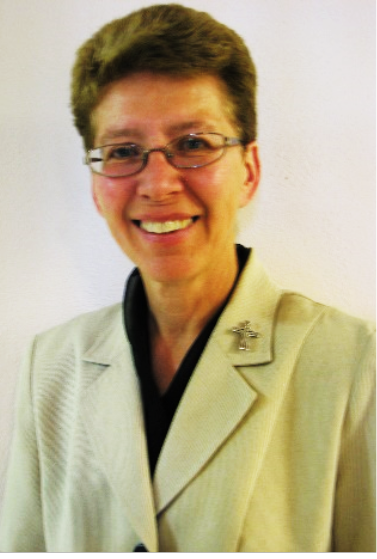Caterpillar Steps
What are the next best steps for any group whether the universal Church, a government meeting, a town hall, a parent-teacher gathering, a trustees meeting, or a family discussion? I have no degree in human relations or psychology, but I have observed the caterpillar. The caterpillar is unpretentious. It moves forward slowly with care, balancing on a leaf or navigating the ground. Its eating is slow but selective. It minds its own business. It realizes it has only a few weeks before metamorphosis sets in. Who wants that? Too dark and confining! Does it know anything about resurrection as a beautiful butterfly? Somehow the caterpillar brain says, “Take the next step.” So Mr. Caterpillar takes the next step to go beyond what is known, to stretch to ____? Meanwhile, millions of other caterpillars—some who don’t pronounce the R in “caterpillar” and many who do—similarly agonize: “Shall I take the next step?“ All appendages move together. Every leg together. Isn’t that the best way to move? Perhaps all groups should take the caterpillar as their model.
Our Days of Encounter in Columbus
We Sisters of Notre Dame will soon be meeting in Columbus in person or via zoom. As I wonder what will happen there, I imagine—expect—to see the influence of Pope Francis. Over the past several years we have studied Laudato Si’ and have made integrity of creation part of our thought and lifestyle. Certainly sharing our efforts to care for the earth will be part of our formal and informal discussions. But more important than topics of conversation will be synodality.—its spirit and its practical application. Our time in Columbus will perhaps give direction to our future. It may even become the basis for resolutions made by our international congregation. All important. All welcomed. All needed. However, what I most anticipate is the synodality. Just as Pope Francis made synodality a constitutive dimension of the Church, that same necessary element will characterize our gathering. Of that, I’m sure. Pope Francis wished to prioritize a culture of encounter over rules. Because the Church is the People of God, our late Pope knew the importance of bonding, of encountering, and he showed this in meeting people where they were, entering into dialogue with them. The spirit of encounter is the same spirit we Sisters are feeling as we anticipate our togetherness in Columbus. Please pray that we do just that.
Shocking Effect
“The Gospel needs to keep its shocking effect. . . It should always keep you on edge and never satisfied” (Tony Walsh, founder of Benedict Labre House). Hundreds of words have described the Gospel, but “shocking” seems …well, rather shocking! I imagine the first listeners of Jesus’ teaching were often shocked. “Love your enemies” Really? That guy who cheated me? “Forgive 70 times 7 times?” But why? Seems useless. She’ll just do it the 491st time!” A shock can be unsettling, even painful. To that extent, I am forced to consider what the Gospel intends, what Jesus Christ desperately wants me to hear. Do I notice? Am I shaken? As I read the Gospel passage of the day, I often let it wash over me. My response may be “That’s nice” or “I like that story” or “Can’t get much out of that one.” Tomorrow I will look for a word or phrase that shocks me. And if I can’t find one? It’s not the gospel. I know whose fault it is—and that’s no shock.
We Keep on Keeping On
Today we celebrate the life of one of our sisters, the third funeral in three weeks. Have you heard/read that Catholic Sisters are diminishing in numbers? Math and shaking heads suggest we are a “dying breed” or a “species becoming extinct.” Not true! If we’re counting heads, we need to gather data from around the world. That’s the advantage of being an international congregation like ours. About 40% of our sisters are Asian; others are from Africa or the Southern Hemisphere. While the numbers may be down in the United States, the spirit is not. We are forward-looking to the possibilities of the present and the future. We trust in God’s goodness and provident care (our charism) and know that God’s providence and goodness never diminish. They expand! We keep on keeping on, grateful for each sister, happy in our togetherness, ministering in some way every day, and confident in God’s care.
That Should Have Been Obvious
We are in the “Good Shepherd Season” of the Church year. Often we read about sheep going through gates, grazing in pastures, hearing the voice of the leader, even following the shepherd. Homilists instruct us to be like sheep. Pope Francis exhorted us to smell like sheep. Too often, though (at least it seems so to me), we miss the obvious. If we are disciples of Christ, we need to imitate the Good Shepherd. Our roles are both shepherd and sheep.
How can we be shepherds imitating that Good Shepherd? In our homes how do we make entering our homes a comfortable experience? Is everyone happy to be home? Do guests feel it’s a great place to be? Are our homes safe from criticism, unkind words, meanness? Considering ourselves gatekeepers, do we feel responsible for cleanliness, order, upkeep? Are there little things we can do to be welcoming to spouses, children, neighbors, anyone who comes to our doors? We can ask ourselves these same questions about our places of employment, our car, the space or aura surrounding me wherever I am.
The sheepfold and gate account in John’s gospel ends with these words of Jesus: “I came so that they might have life and have it more abundantly.” How life-giving am I to those in my circle, my sheepfold?





